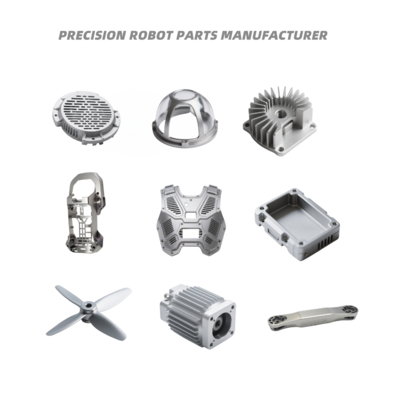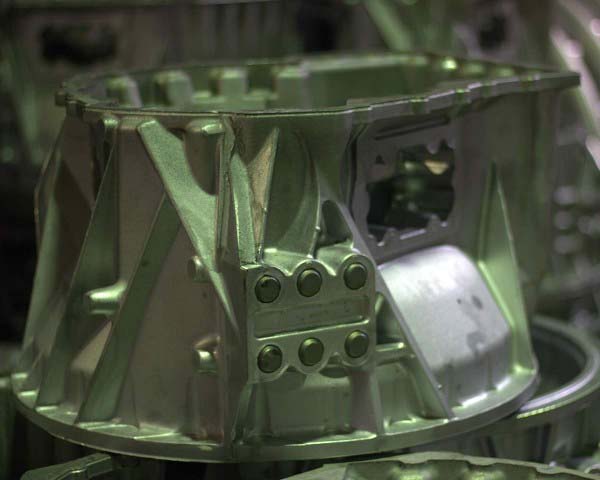Key features that make Precision aluminum casting a trusted choice in metalworking
Wiki Article
Just How Aluminum Foundries Add To Different Industries: An Extensive Introduction
Aluminum foundries work as important providers across multiple fields, including auto, aerospace, construction, and electronic devices. They create components that are not just lightweight but also sturdy, boosting the performance of various items. With advanced casting techniques and a commitment to sustainability, these factories are adapting to satisfy evolving sector needs. As they introduce, the effect of light weight aluminum spreadings on different applications increases vital inquiries about the future of manufacturing. What exists ahead for this crucial market?The Duty of Aluminum Foundries in the Automotive Sector
As the vehicle sector significantly embraces lightweight products to improve fuel effectiveness and performance, light weight aluminum factories play an essential duty in this advancement. These facilities specialize in the manufacturing of aluminum spreadings, which are vital components in modern-day cars. By providing high-strength, light-weight parts, aluminum foundries enable producers to minimize the total weight of cars, ultimately resulting in enhanced gas economic climate and minimized emissions.Light weight aluminum's resistance to rust even more boosts car durability, making it an attractive option for automakers. Foundries use sophisticated methods such as die casting and sand spreading to create accurate and detailed parts, making certain that they meet stringent industry standards. Furthermore, the capability to recycle light weight aluminum successfully adds to a more lasting production process. As the automotive sector proceeds to innovate, light weight aluminum foundries will certainly stay pivotal in providing the products necessary for the next generation of automobiles, sustaining both efficiency and environmental goals.

Aerospace Applications of Light Weight Aluminum Castings
Light weight aluminum castings are essential to the aerospace industry, providing a mix of light-weight stamina and durability that is vital for airplane performance. These spreadings are used in various components, such as engine components, structural frames, and touchdown gear, where weight reduction is crucial for gas effectiveness and overall security. The flexibility of light weight aluminum allows for complex geometries that improve aerodynamic efficiency while maintaining structural integrity.Developments in casting modern technologies have improved the precision and surface area finish of light weight aluminum parts, reducing the need for substantial post-processing. This effectiveness not only accelerates manufacturing timelines however also lowers costs, making light weight aluminum an attractive option for suppliers. The deterioration resistance of aluminum guarantees long life and dependability in severe operating environments, additionally developing its role in aerospace applications. As the market progresses, light weight aluminum castings proceed to be a crucial material, driving innovation and supporting the growth of next-generation airplane.
Construction Market Advancements With Aluminum
The building sector has increasingly embraced aluminum due to its lightweight residential or commercial properties and flexibility, paralleling its effective applications in aerospace. Advancements in light weight aluminum style have resulted in more powerful, a lot more efficient frameworks, making it possible for designers and contractors to check out brand-new opportunities. The product's resistance to rust and low upkeep needs make it especially appealing for both commercial and domestic tasks.Light weight aluminum's convenience facilitates the development of intricate designs, allowing for aesthetic enhancements that were formerly challenging with typical products. Prefabrication strategies have additionally evolved, using aluminum to minimize construction time and costs considerably. Furthermore, the energy efficiency of aluminum systems-- such as home window frames and roof covering-- contributes to sustainable building techniques, aligning with modern-day environmental requirements. As the building sector remains to accept these innovations, light weight aluminum's function is anticipated to increase, driving further innovation and adding to the advancement of resilient frameworks.
Electronic devices and the Need for Lightweight Light Weight Aluminum Parts
With the fast development of modern technology, the demand for lightweight aluminum components in the electronic devices field has actually risen. As devices end up being much more mobile and small, makers seek materials that provide both longevity and weight decrease. Aluminum, with its excellent strength-to-weight ratio, has arised as a favored choice for parts such as cases, warmth sinks, and architectural assistances.The usage of light weight aluminum not only enhances item performance yet also adds to energy effectiveness, as lighter gadgets require less power during procedure. Additionally, light weight aluminum's exceptional conductivity makes it suitable for electronic applications, guaranteeing efficient warm dissipation and lessening the risk of overheating.
As consumer choices change in the direction of streamlined and lightweight gizmos, light weight aluminum factories play an essential role in fulfilling the developing demands of the Aluminum Casting Company electronic devices sector (Aluminum Casting Company). Their capacity to generate top quality and precise aluminum parts supports innovation, enabling producers to push the borders of layout and capability
Sustainable Practices in Light Weight Aluminum Foundries
As the electronics market progressively prioritizes sustainability, aluminum factories are adapting their methods to align with these ecological goals. Several foundries are executing recycling programs that reclaim light weight aluminum scrap, greatly decreasing the requirement for raw products and reducing waste. By making use of energy-efficient modern technologies, these facilities are decreasing their carbon impact; for example, employing electric furnaces instead of typical gas-fired ones can lead to significant power cost savings.Furthermore, light weight aluminum factories are purchasing water conservation steps, such as closed-loop systems that reuse water made use of in cooling processes. These practices not only lower water usage however also reduce the ecological influence associated with wastewater discharge. Many shops are exploring renewable power sources, such as solar and wind power, to meet their power requires sustainably. Via these initiatives, light weight aluminum foundries exhibit a commitment to ecological stewardship while continuing to fulfill the demands of the electronic devices sector.
Future Patterns in Light Weight Aluminum Foundry Technologies
Emerging innovations are poised to change light weight aluminum shops, improving efficiency and item quality while advancing sustainability initiatives. Advancements such as expert system and artificial intelligence are expected to maximize manufacturing processes by predicting equipment failings and boosting source allowance. The integration of innovative robotics will certainly improve procedures, lowering labor costs and decreasing human mistake.Additive production, or 3D printing, is also obtaining traction, making it possible for the manufacturing of complex geometries that were previously unattainable with traditional approaches. This shift might bring about considerable material financial savings and lowered waste. Furthermore, wise factories making use of IoT (Internet of Things) technologies will certainly make it possible for real-time tracking and information analysis, cultivating proactive decision-making.
The adoption of cleaner melting technologies and reusing strategies will better decrease the ecological impact of aluminum foundries, making them much more sustainable. Collectively, these trends signify a future where light weight aluminum shops can run with better effectiveness and obligation.
Regularly Asked Concerns
What Are the Ecological Impacts of Aluminum Foundries?

How Do Foundries Make Sure Quality Assurance in Light Weight Aluminum Casting?
Foundries assure high quality control in aluminum casting by implementing rigorous inspection procedures, making use of advanced innovation, conducting routine material testing, and sticking to sector requirements, consequently maintaining consistency and reliability in their ended up products. aluminum casting.What Is the Average Life-span of Aluminum Cast Parts?
The average lifespan of aluminum actors parts generally varies from 10 to half a century, relying on aspects such as ecological problems, use, and maintenance. Correct care can considerably boost their resilience and efficiency in time.Exactly How Are Light Weight Aluminum Alloys Selected for Certain Applications?
Light weight aluminum alloys are chosen based on elements such as strength, rust resistance, weight, and thermal conductivity. Designers assess the specific requirements of applications to determine one of the most suitable alloy for finest efficiency and durability.What Are the Safety Rules for Light Weight Aluminum Shop Employees?
Safety guidelines for aluminum foundry employees include individual safety devices mandates, air flow needs, exposure limits to dangerous materials, and protocols for handling molten metal. Compliance assurances worker safety and reduces wellness threats connected with shop procedures.As the vehicle industry progressively accepts lightweight products to improve fuel efficiency and efficiency, aluminum shops play a crucial duty in this evolution. As consumer choices change towards smooth and light-weight gizmos, aluminum shops play a necessary role in satisfying the advancing needs of the electronics industry. As the electronics market increasingly focuses on sustainability, aluminum factories are adapting their methods to align with these environmental goals. Many foundries are executing reusing programs that redeem light weight aluminum scrap, significantly minimizing the requirement for raw materials and lessening waste. Safety and security regulations for aluminum factory workers consist of individual safety equipment mandates, ventilation demands, direct exposure restrictions to hazardous products, and methods for handling liquified steel.
Report this wiki page